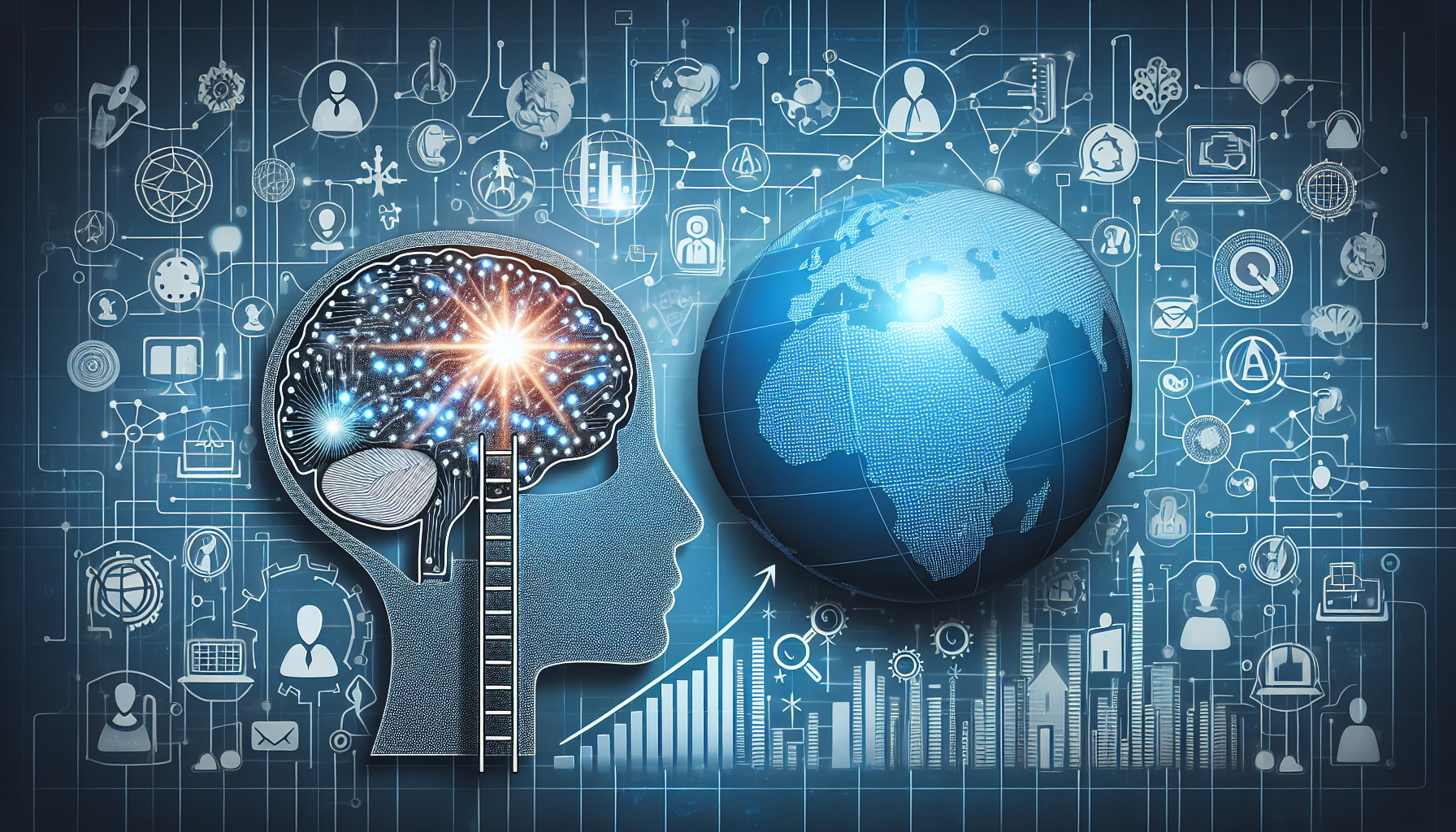The Impact of AI on the Job Market
Artificial Intelligence (AI) is revolutionizing the job market, extending far beyond automation and efficiency improvements. It shapes industries by transforming roles, requiring new skills, and creating unprecedented opportunities for those who can navigate this evolving landscape. As more companies integrate AI into their operations, understanding the skills needed for future business success is paramount.
The Evolution of Jobs in the AI Era
-
Job Displacement vs. Job Creation
- AI is often associated with job displacement; however, it also generates new employment opportunities. For instance, roles such as AI trainers, data analysts, and machine learning engineers have emerged.
- Sectors like healthcare, finance, and manufacturing experience profound changes, where AI tools enhance human capabilities rather than fully replace them.
-
Hybrid Roles
- Job roles are becoming more hybrid, blending traditional skills with AI-driven proficiencies. For instance, marketing professionals now rely on AI tools for customer segmentation and personalized marketing, necessitating a blend of creative and analytical expertise.
Essential Skills for the Future Workforce
To thrive in an AI-augmented job market, professionals must develop a range of skills that integrate human intelligence with technological proficiency.
1. Technical Skills
-
Data Literacy
- Understanding how to read, interpret, manage, and communicate data is crucial. Professionals must be able to work with databases and visualize data to make informed decisions.
-
Programming and Coding
- Basic programming skills, particularly in languages like Python and R, are increasingly beneficial. Knowledge of AI libraries, such as TensorFlow and PyTorch, can open doors to new opportunities.
-
AI and Machine Learning
- Familiarity with AI concepts and machine learning algorithms is becoming essential in many fields, not just in tech-centric roles but also in marketing, sales, and operations.
2. Soft Skills
-
Adaptability and Flexibility
- The rapid evolution of technology demands a workforce that can adapt to new tools and methods. Professionals need to be open to continuous learning and reskilling.
-
Critical Thinking and Problem Solving
- The ability to analyze complex problems and derive innovative solutions is key in an AI landscape. AI can provide insights, but human judgment remains essential for decision-making.
-
Collaboration and Teamwork
- With AI tools influencing how teams work, professionals must excel in collaborating with both machines and humans. An interdisciplinary approach promotes innovative solutions.
3. Creative Skills
-
Innovation and Design Thinking
- Creativity will continue to differentiate humans from machines. Skills involving brainstorming, ideation, and design thinking are critical for creating informed strategies and campaigns.
-
Emotional Intelligence (EI)
- As AI takes over more analytical tasks, emotional intelligence becomes invaluable. Understanding and managing emotions — both one’s own and those of others — is essential for effective communication and leadership.
The Role of Education and Continuous Learning
As the demand for these skills evolves, educational institutions and employers must adapt their training programs to fit the new paradigms of the job market.
-
Reskilling and Upskilling
- Organizations should invest in reskilling initiatives, providing employees with ongoing training in emerging technologies and soft skills essential for the AI era.
-
Partnerships with Tech Firms
- Collaborating with technology companies can help educational institutions build curricula that reflect current industry demands and equip students with practical experiences.
Job Profiles to Watch in the AI Age
-
Data Scientists
- They analyze and interpret complex data to inform business strategies. A solid foundation in statistics and programming is essential, along with strong communication skills to translate data findings into actionable insights.
-
AI Ethicists
- As AI raises ethical issues, these professionals ensure that AI applications align with ethical guidelines, addressing biases, accountability, and transparency in AI systems.
-
AI Business Strategists
- They focus on integrating AI within business strategies, identifying opportunities for AI adoption that enhance product offerings and improve operational efficiency.
-
Digital Marketing Specialists
- They utilize AI tools to analyze consumer data, optimize digital marketing campaigns, and personalize content. Skills in SEO, content creation, and analytical tools are important.
Industry-Specific Considerations
-
Healthcare
- Professionals will need to navigate AI-enhanced patient care technologies, requiring a mix of healthcare knowledge and tech proficiency.
-
Finance
- Financial analysts must understand how AI algorithms influence trading patterns and market predictions, necessitating proficiency in both finance and technology.
-
Manufacturing
- With AI automating processes, workers in this sector should adapt by learning about robotics and smart manufacturing technologies.
Creating a Culture of Innovation
Organizations must foster an environment that encourages innovation and the development of new skill sets.
-
Encourage Experimentation
- Allowing employees to try new approaches can lead to innovative solutions powered by AI.
-
Diversity in Hiring
- An inclusive workforce brings diverse perspectives, which can enhance creativity and problem-solving in AI implementations.
The Future of Work
Embracing AI’s potential requires a proactive approach to skill development and workforce adaptation. Professionals and organizations must align their strategies with the continually evolving job landscape, focusing on an integrated approach of technical and soft skills to remain competitive in an AI-driven world.
By understanding the nuances of AI’s impact and preparing for the skills needed, individuals can position themselves at the forefront of their industries, embarking on successful careers in an exciting new era of work.


